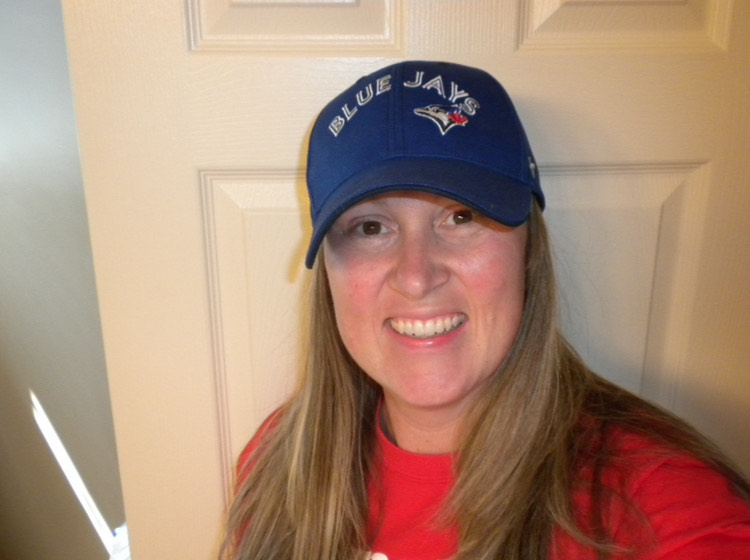
Learning a New Way of Life
Meegan Campbell was a new, single mom, settling into life with her six-month-old son, Dallas. She’d taken maternity leave from her work as a high school teacher, specializing in co-operative education.
“I’d help students find job placements in the community,” Meegan explains, “and monitor them at their placements.”
She’d been a teacher for 14 years, though she’d worked in co-operative education for three of those years.
“I truly feel as though I was just coming into my own,” she says.
From symptoms to diagnosis
Meegan started experiencing headaches and strange smells, which a walk-in clinic doctor attributed to a sinus infection. She was given a prescription for antibiotics and sent on her way.
When the headaches wouldn’t subside, Meegan made an appointment with her family doctor. He thought she might be having migraines, though he found it unusual that she’d only start having migraines at 39 years old. So, Meegan was sent for a CT scan.
“I remember every minute of walking through the hospital and being like, ‘It’s totally fine. There’s nothing going on,’” Meegan says. “Tim McGraw’s song, Live Like You Were Dying, was playing on the radio at the time. I haven’t been able to listen to it since.”
Partway through her CT scan, Meegan was told they’d have to use contrast.
‘Contrast’ refers to a substance taken orally or injected through an intravenous line that allows a particular organ or tissue to be seen more clearly.
“I said, ‘We can’t do contrast because I’m still nursing my son,’” Meegan recalls.
She continued the scan normally and was told afterwards to follow up with her doctor.
Nervous that something abnormal was detected, Meegan feels fortunate to have received her results sooner than later.
“The way the doctor told me was probably the nicest, calmest way I could have found out that I had a brain tumour,” Meegan says. “If I had to wait any longer, I would have just been a mess.”
Meegan was diagnosed with a non-malignant pituitary macroadenoma, which had started behind her nose and spread to her optic nerves and a carotid artery.
An unexpected shift
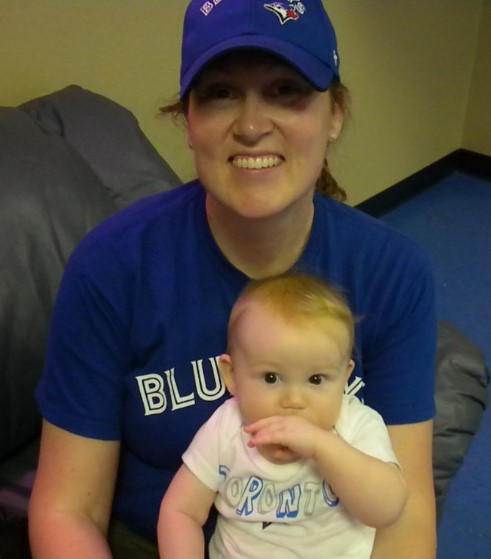 “I didn’t know anything about brain tumours,” she says. “I’d done a lot of ‘Dr. Google’ research, but I didn’t know anyone who’d ever had a brain tumour. To be a single mom on mat leave, finding out I had a brain tumour, was hard.”
“I didn’t know anything about brain tumours,” she says. “I’d done a lot of ‘Dr. Google’ research, but I didn’t know anyone who’d ever had a brain tumour. To be a single mom on mat leave, finding out I had a brain tumour, was hard.”
Meegan found herself having to focus on her own health, while taking care of her new baby.
“I think it unfairly impacted the first year of my son’s life, because I was concerned with my health and maybe spent more time at appointments than I did just enjoying him being a baby,” she says.
Meegan underwent a transsphenoidal surgery, which is surgery performed through the nose and sphenoid sinus to remove pituitary tumours.
“It was reasonably successful,” Meegan says. “I went on to drive and work and live by myself and take care of my son and travel and do all the normal things.”
She would have yearly MRI scans to monitor her progress, which was going well until four years post-surgery.
“My endocrinologist called me and said, ‘We’re recommending radiation because your tumour is growing larger than we’re comfortable with,’” Meegan says.
Meegan was reluctant to take part in radiation treatments due to the potential side effects. With the guidance of her neurosurgeon, she opted for a craniotomy instead. A craniotomy would involve removing part of the skull to expose the brain and removing as much of the tumour as possible.
Meegan learned she had a stroke at the end of her surgery, which landed her in the hospital’s stroke unit. She was in the hospital for 77 days, unable to visit with friends or family as this took place during the COVID-19 lockdown.
The road to recovery
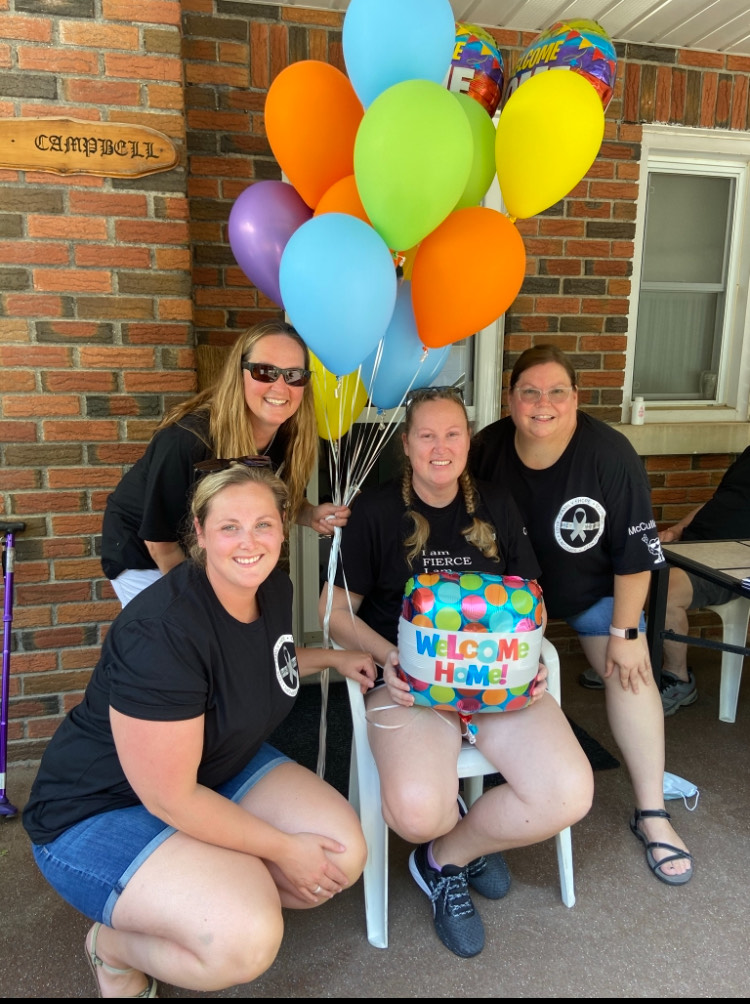 Once out of the hospital, Meegan had a long road ahead with her stroke recovery. She and her son moved in with her parents, as she focused on occupational and physical therapy, memory recall, and taking up new hobbies.
Once out of the hospital, Meegan had a long road ahead with her stroke recovery. She and her son moved in with her parents, as she focused on occupational and physical therapy, memory recall, and taking up new hobbies.
“My parents live outside the city and they have all kinds of bird feeders,” Meegan says. “I didn’t have a lot to do, so I would sit and watch the birds and visit the feeders, and then I grabbed my camera and started to take pictures.”
Meegan’s newfound love of photography led to her taking online photography courses, as well as courses in interior decorating.
“I’ve been doing things that interest me, because the courses are free and I don’t have anything to prepare for when it comes to going back to work,” she says.
Meegan’s future teaching is still unknown, with Meegan facing cognitive struggles and an inability to drive. Still, she takes this shift in stride, looking at it as her new reality.
“Taking courses gets me using the computer again, which is hard because I can’t type like I used to,” Meegan says. “It gets me doing things that are frustrating, but necessary. Because sometimes, when things get too hard, I just stop doing them now—which is not my old personality, but it’s my new personality. It’s good for me to go through some struggles and keep challenging myself.”
Part of challenging herself has meant taking small steps to regain her independence.
“I worked so hard my whole life to buy a house and have a job and buy a car, and then I couldn’t use any of it,” she says.
Meegan lobbied with her rehabilitation counsellors, who helped her find some of the normalcy she had been longing for.
“Next to my son, my stroke recovery is my proudest accomplishment,” Meegan says.
“It was me deciding, ‘I have to show my son what strength looks like.’”
Regaining independence
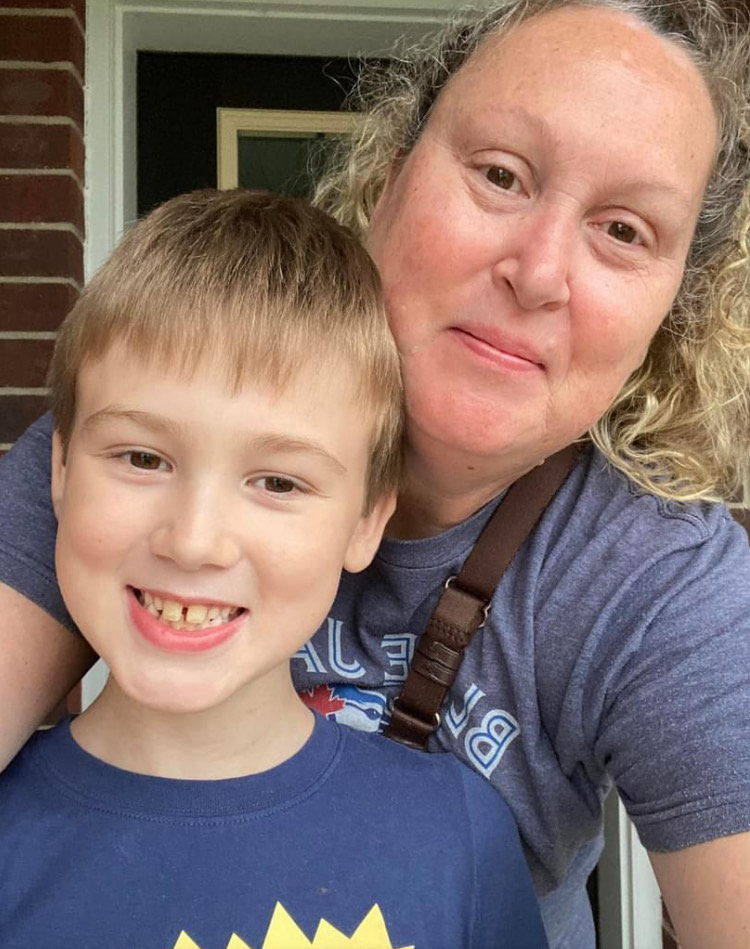 Today, Meegan is back to living on her own. Her son, who is 10 now, lives with her on the weekends and with her parents during the week. As Meegan is unable to drive, her parents also drive her places when needed.
Today, Meegan is back to living on her own. Her son, who is 10 now, lives with her on the weekends and with her parents during the week. As Meegan is unable to drive, her parents also drive her places when needed.
Meegan is still having annual MRIs, though she no longer meets with her neurosurgeon.
“My tumour isn’t showing any signs of real growth,” says Meegan, “so we’re doing a ‘wait and watch,’ as they call it.”
She attends a virtual support group through Brain Tumour Foundation of Canada, and would one day like to support others who have experienced brain-related issues.
“When I go back to work, I’d like to work with students who have had concussions or traumatic brain injuries,” Meegan says, “or, be an advocate for people with brain injuries.”
Accessibility is another issue Meegan would like to take on.
“I don’t feel accessibility is good enough in some places,” she says. “A lot of people don’t think about it. I didn’t. When I could walk and do everything normally, I never noticed, ‘Oh, there’s no railing by these steps.’ But now I do.”
She’s taken up yoga, attending weekly classes as part of her recovery. She’d also like to get back to travelling.
“My family would go on trips for March break and Christmas,” Meegan says, “so I’d like to get back to that.”
Her son is a major inspiration for her wanderlust, given his interests.
“Dallas is totally obsessed with Canadian geography right now, so I’d like to have him see some of the things he’s talked about,” Meegan says.
A strong support network
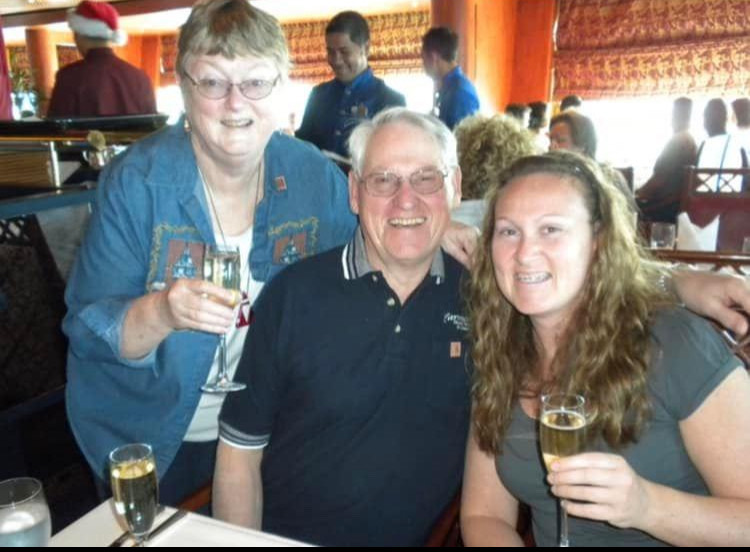 Meegan credits her son, her parents, and her close group of friends for helping her land back on her feet, quite literally.
Meegan credits her son, her parents, and her close group of friends for helping her land back on her feet, quite literally.
“During my first, pre-COVID surgery, my friends would come over on their summer vacation and babysit my son, so my parents could visit me in the hospital,” Meegan says. “I’ve always been so thankful for that, because that was their summer vacation, and they gave it up for me and my family.”
Recalling how her friends learned of her brain tumour, Meegan has to laugh.
“I hadn’t really been open with what was going on,” Meegan says. “We were out for dinner, before going to a Jason Aldean concert. So, I was sitting there, looking at my three friends, and I said, “Hey, I’ve got something to tell you.’ They thought I was going to tell them that I was dating someone. No, it was a different kind of news.”
Telling her friends about her brain tumour “changed the trajectory of the night,” Meegan says, but she’s thankful they’ve stood by her side through it all.
“I don’t know where I’d be without them,” Meegan says, adding that she’d like to acknowledge her friends for their patience and endless support through the years.
Her friends, also teachers, made Meegan a shirt to show their support while she was in the hospital, and coined the group name Campbell’s Cranium Crew. Another group of colleagues arranged a ‘meal train’ to supply meals to Meegan’s family, while other friends have helped by doing seasonal work around Meegan’s house and offering to drive her as the need arises.
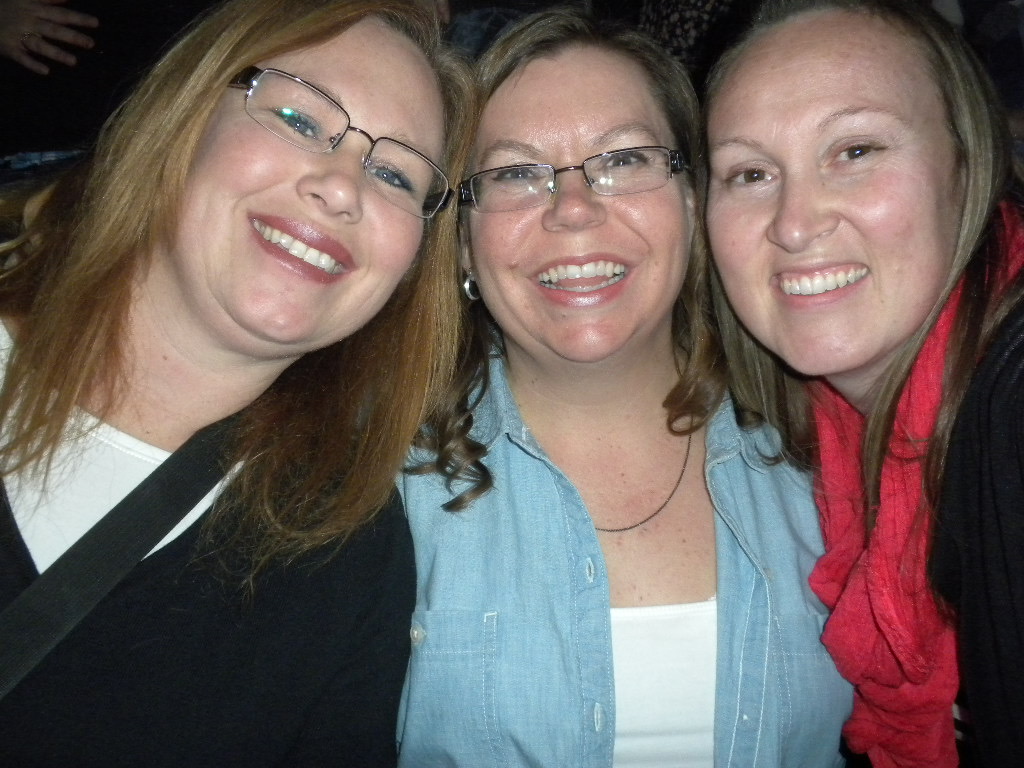 “Teachers do that kind of thing,” Meegan says. “Teachers are a special bunch.”
“Teachers do that kind of thing,” Meegan says. “Teachers are a special bunch.”
If Meegan is any indication, they certainly are.
She recently faced another health challenge, learning she’d have to undergo gallbladder surgery.
“I’m not a big fan of surgeries,” Meegan says, “though this one won’t be super invasive. They’re not going to open my skull—at least, I hope not.”
Her surgery seems to have gone well. While she says it was anxiety-inducing, she found ways to prepare herself for the day of surgery and has since had a smooth recovery.
With humour and a strong support network on her side, Meegan continues to look at the positive and conquer the challenges that come her way, one step at a time.